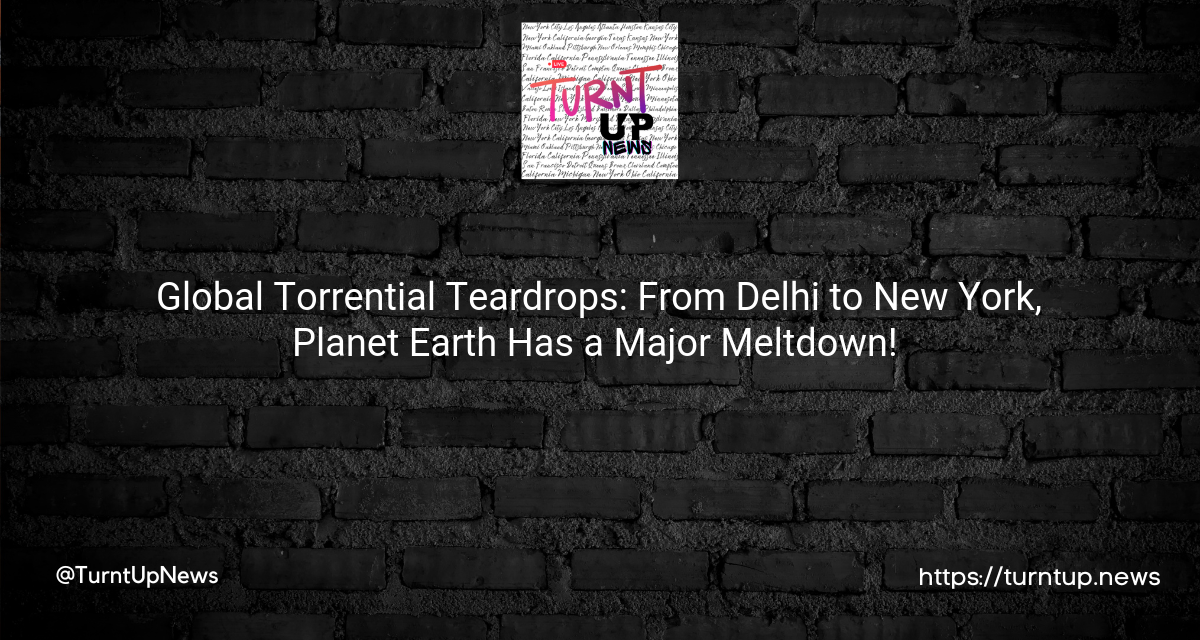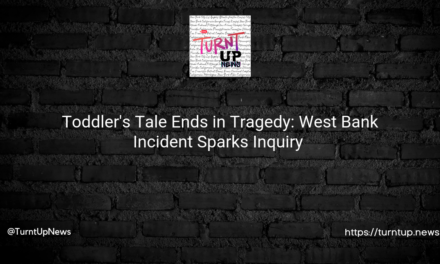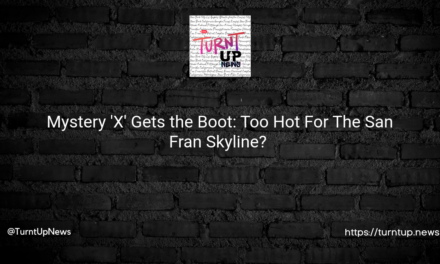💦🌍 Global Torrential Teardrops: From Delhi to New York, Planet Earth Has a Major Meltdown! 🚨🚣♂️
TL;DR: Who left the tap on? Mother Earth, apparently! From New Delhi to New York, monsoons and rainstorms are transforming streets into rivers and causing deadly flooding. Why, you ask? Scientists reckon that our increasingly warm and wet atmosphere is intensifying the downpour.🌡️🌧️ But how much are we to blame? And more importantly, are we ready to weather these tempests?
Turnt Up News is taking a deep dive into the global deluge…
“Hey, let’s cancel school ’cause it’s raining!” Sounds like a dream for every kid ever, right? 🏫💦 Well, not when you’re in New Delhi and the rain is so severe that it’s claiming lives, causing landslides and flash floods, and making roads look like water parks. Ouch, talk about a harsh rain check! 😲🌊
And while India’s dealing with its monsoon mess, Japan is facing a similar plight. The southwest region is drowning in a torrential downpour causing deadly floods and mudslides, with houses looking more like riverfront properties. 😱🏚️
But hold up, the US isn’t spared either. Parts of New York and Vermont are experiencing the worst flooding since Hurricane Irene in 2011. Flooding: the sequel no one asked for! 🌪️💧
One could think these are isolated incidents, but atmospheric scientists are connecting the dots. The culprit? Our warm and wet atmosphere. 🔥🌫️
Here’s a cool fact: a warmer atmosphere can hold more moisture, which then turns into heavy rainfall. How come? Picture a balloon. When it’s heated, it expands, thus holding more of, well, everything! Similarly, warm air holds more moisture, which means more rain. ☔🎈
So, is it getting hot in here or is it just the climate change? 🌍🔥
According to NASA, the average global temperature has risen by at least 1.1 degrees Celsius (1.9 degrees Fahrenheit) since 1880. And for every degree Celsius the atmosphere warms, it holds around 7% more moisture. That’s a lot of extra rain! 💦📈
All this extra moisture and warmth means our storms are only getting wetter and wilder, leading to more intense rain events. So, does this mean we’ll need to trade our cars for boats soon? 🚗➡️🚣♀️
Brian Soden, a professor of atmospheric sciences, confirms that this isn’t a surprising turn of events. According to him, “It’s a very robust prediction of climate models.” Meaning, our storms are now turning into the annoying friend who overstays their welcome! 🌪️📊
So, here we are, witnessing the world getting wetter, warmer, and wilder. As we brace ourselves for more intense weather, we have to ask: are we prepared for what’s coming next? Can we turn back the tide or should we start investing in some sturdy rain boots and a fleet of boats?
Also, should we, as a society, start taking climate change more seriously? Should we accelerate our efforts to reduce carbon emissions and switch to renewable sources of energy? Or, will we continue to ignore the signs until it’s too late? 🌍🔥💭
Remember, these are not recommendations, they are just the facts combined with some provocative questions to tickle your brain cells. Always do your own research, folks! And in the meantime, stay safe and dry out there.
So, we end with this: What steps can each of us take to mitigate the effects of climate change, and are we willing to make those changes? 💪🍃🌍🤔





